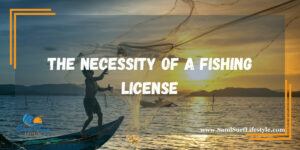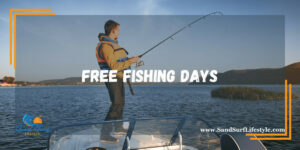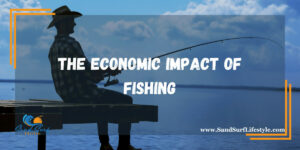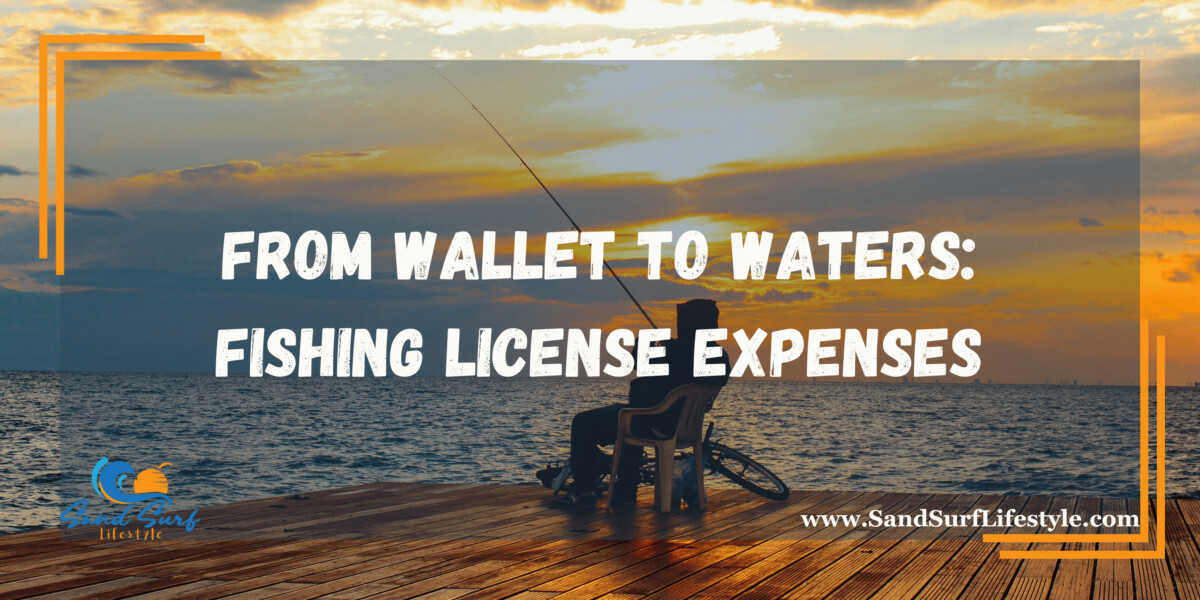Fishing is a beloved pastime for many people, offering the opportunity to connect with nature and enjoy the thrill of catching fish. However, before you cast your line into the water, there’s one important detail you need to address: the fishing license. In this article, we’ll delve into the world of fishing licenses, exploring their cost, purpose, and the various factors that can influence the price. Whether you’re a seasoned angler or a novice just getting started, understanding the price of a fishing license is key to enjoying this cherished outdoor activity to the fullest.
1. The Necessity of a Fishing License

Before embarking on a fishing adventure, it’s imperative to acknowledge the fundamental significance of fishing licenses. In numerous regions, possessing a fishing license is more than a mere choice; it is a legal obligation that carries a multitude of vital functions and responsibilities.
First and foremost, fishing licenses play an indispensable role in the conservation of aquatic ecosystems. They serve as a financial resource, funneling funds into initiatives dedicated to maintaining and enhancing fish populations. These funds are utilized for stocking lakes and rivers with fish, conducting research on fish populations and habitats, and executing essential habitat restoration projects. Without this financial support, many fish species might face the risk of overfishing and habitat degradation.
Furthermore, fishing licenses are an indispensable tool for ensuring the sustainability of fisheries. By regulating and limiting the number of fish that can be harvested, authorities can help safeguard the delicate balance of aquatic ecosystems. This, in turn, guarantees that future generations can continue to enjoy the thrill of fishing and the beauty of natural waterways.
To learn about choosing the best fishing rod, check out this article.
2. The Cost of a Fishing License
The cost of a fishing license is a critical factor for anyone interested in angling. It’s essential to recognize that this cost can be quite diverse, influenced by various factors that encompass location, the type of fishing, and even your age.
In the United States, fishing licenses are primarily issued at the state level, resulting in a patchwork of pricing structures across the country. Consequently, the fees for fishing licenses can vary substantially from one state to another. On average, an annual fishing license for an adult typically falls within the range of $20 to $50, although this figure can deviate significantly based on regional policies and considerations.
Moreover, states often extend concessions to specific demographics. Senior citizens, for instance, may benefit from significantly reduced license fees, if not complete waivers. Similarly, children, usually under the age of 16, frequently enjoy reduced or waived fees to encourage youth involvement in fishing.
Understanding the cost of a fishing license in your region is crucial for budgeting and ensuring you comply with legal requirements before casting your line. So, whether you’re an avid angler or an occasional fisherman, knowing the fees associated with fishing licenses is a fundamental step in preparing for your fishing adventures.
3. Resident vs. Non-Resident Licenses
The distinction between resident and non-resident fishing licenses plays a pivotal role in determining the cost of your angling permit. This differentiation is a reflection of how fishing license fees contribute to conservation efforts and how they are funded.
Residents, as individuals who reside within the state, typically enjoy the advantage of lower fishing license fees. This reduction in cost is attributed to the fact that residents contribute to state conservation efforts through taxes, thereby earning them a discount on their fishing licenses. It’s a way for states to reward their residents for their ongoing support of local environmental initiatives.
In contrast, non-residents, individuals who do not live within the state’s borders, often face higher fees when obtaining a fishing license. These individuals do not contribute to the state’s conservation funding through taxes, and, as a result, pay a premium for the privilege of fishing in that particular state.
It’s vital to familiarize yourself with your state’s residency criteria, as the rules for establishing residency can vary. Understanding the implications of your residency status is essential, as it directly influences the cost of your fishing license. Whether you’re a resident or non-resident, knowing how these distinctions affect your license fees is fundamental for planning your fishing excursions and adhering to local regulations.
4. Types of Fishing Licenses
Fishing licenses, like the sport itself, are adaptable and versatile, designed to cater to a diverse range of needs and preferences among anglers. Beyond the standard annual license, many states provide an array of options to accommodate varying fishing habits and durations.
For those who enjoy occasional angling or are visiting a specific area for a limited time, shorter-term licenses offer a practical solution. Daily or weekly fishing licenses are available in numerous regions, making them more cost-effective and convenient for tourists or those who don’t engage in fishing year-round.
Furthermore, some states recognize the distinct appeal of different fishing environments. Consequently, they offer specialized licenses tailored to specific types of fishing, such as freshwater or saltwater fishing. These specialized permits provide access to particular ecosystems, ensuring that anglers have the appropriate authorization to explore and enjoy their chosen fishing arena.
Additionally, combination licenses are a convenient option for enthusiasts who want to dabble in various fishing activities. These comprehensive licenses bundle multiple fishing privileges into a single permit, making them an attractive choice for those who want to explore diverse fishing experiences.
Understanding the variety of fishing license options available in your area empowers you to choose the one that best aligns with your fishing goals, whether you’re a seasonal angler, an explorer of unique fishing environments, or someone seeking a cost-effective way to enjoy your favorite pastime.
5. Youth and Senior Discounts
Fishing is a timeless pastime that transcends generations, and many states recognize the importance of making it accessible to people of all ages. As such, they offer significant discounts on fishing licenses for both the youngest and oldest members of the angling community.
Youth fishing licenses are tailored to introduce children and teenagers to the joys of fishing. These licenses are often available at a fraction of the cost of regular adult permits or are even offered for free. The reduced fees encourage young anglers to get outdoors, connect with nature, and develop a lifelong passion for fishing.
Similarly, senior citizens looking to savor their retirement years on the water are also extended a helping hand. Senior discounts on fishing licenses ensure that older individuals can continue enjoying this beloved outdoor pursuit without shouldering the financial burden of a full-price permit. These reduced rates acknowledge the valuable role fishing plays in enhancing the quality of life for seniors, promoting both physical activity and social engagement.
By offering these discounts, states not only encourage intergenerational bonding but also underscore the inclusivity and accessibility of fishing as a recreational activity. Whether you’re young or young at heart, reduced-cost fishing licenses make it easier for people of all ages to cast their lines and create cherished memories by the water.
6. Free Fishing Days

“Free Fishing Days” are a fantastic initiative embraced by many states, allowing people to experience the joy of fishing without the usual requirement of a fishing license. These designated days, often scattered throughout the year, serve as a welcoming invitation to newcomers, families, and those who may be curious about the sport.
These events hold immense value as they lower the barriers to entry for fishing, reducing the initial expense that might deter individuals from trying it. It’s a splendid opportunity for novices to dip their toes into the angling world, discover the tranquility of fishing, and determine if it resonates with their interests.
While Free Fishing Days are typically limited, they foster a sense of community, providing an inclusive environment for all to participate. Families can bond over shared experiences, and seasoned anglers often volunteer their expertise to assist newcomers, creating a supportive and educational atmosphere by the water’s edge.
7. Additional Perks of Fishing Licenses
Fishing licenses offer more than just the legal right to cast a line; they come laden with a multitude of additional benefits that enrich the overall fishing experience. Beyond the essential role of funding conservation efforts, fishing licenses have a broader impact on the angling community and the environment.
Firstly, the revenue generated from fishing license sales is often reinvested into initiatives that directly benefit anglers. Many states utilize these funds to support fish stocking programs, ensuring that water bodies remain populated with healthy and abundant fish populations. This proactive approach guarantees that anglers have ample opportunities to engage in their sport and experience the thrill of catching fish.
Furthermore, fishing license fees contribute to the maintenance and improvement of fishing facilities and access points. These investments enhance the overall angling experience by providing well-maintained piers, docks, and boat ramps, making it easier for individuals to access fishing locations and enjoy their time by the water.
Some fishing licenses offer exclusive access to special events, fishing clinics, or educational resources. These opportunities allow anglers to expand their knowledge, connect with like-minded individuals, and deepen their appreciation for the sport. Whether it’s participating in a local fishing tournament or attending a workshop on fish conservation, these perks add value to the fishing license and create a more robust angling community.
8. Factors That Influence License Costs
The cost of a fishing license is not solely determined by your residency status or the type of license you require; it’s influenced by a constellation of factors, each playing a unique role in determining the final price of your angling permit.
One critical factor is the duration of the license. While annual licenses are the most common, many states offer shorter-term options, such as daily or weekly licenses. These provide flexibility for occasional anglers or tourists who may not need year-round access to fishing. Shorter-term licenses often come at a lower price point, aligning with the temporary nature of their use.
Another key influencer of license cost is the type of fishing you intend to undertake. Certain species may require additional endorsements or tags, each associated with an extra fee. These endorsements are designed to manage and conserve specific fish populations by regulating their harvest. If you plan to target these species, it’s essential to factor in the cost of these endorsements when purchasing your license.
The distinction between freshwater and saltwater fishing can impact license costs. States often differentiate between these environments, reflecting the varying conservation needs and fishing opportunities they offer. Consequently, the cost of a license may vary depending on whether you plan to fish in freshwater or saltwater bodies.
9. Online Purchasing and Convenience
In recent years, the process of obtaining a fishing license has undergone a remarkable transformation, thanks to the advent of online purchasing options. This technological advancement has brought unprecedented convenience to the world of fishing licensing, simplifying the once-persistent hassles associated with acquiring permits.
Many states now offer secure online platforms where anglers can easily purchase, renew, or even print their fishing licenses from the comfort of their homes. This newfound convenience eliminates the need for in-person visits to government offices or bait shops, saving time and effort for both seasoned anglers and newcomers alike.
The benefits of online fishing license purchase extend beyond mere convenience. Online platforms often provide comprehensive information, including fishing regulations, catch limits, and specific rules for various bodies of water. This readily accessible knowledge ensures that anglers are well-informed and compliant with local regulations, contributing to sustainable fishing practices.
Moreover, online systems often offer immediate confirmation of your license purchase, allowing you to hit the water with minimal delay. The digital nature of these licenses also reduces the risk of losing or damaging physical permits, as they can often be stored digitally on a mobile device.
10. License Fees and Conservation Efforts
The fees collected from fishing licenses serve as a lifeline for conservation efforts aimed at preserving aquatic ecosystems and ensuring the sustainability of fisheries. These funds are not merely transactional; they are investments in the health and vitality of our natural world.
One of the most crucial roles of these fees is to support restocking programs, ensuring that lakes and rivers remain populated with fish for anglers to pursue. These programs play a pivotal role in maintaining fish populations, particularly in areas where factors like overfishing or habitat degradation have depleted native stocks.
Moreover, fishing license revenue contributes to the maintenance and restoration of fish habitats. Healthy ecosystems are essential for the well-being of fish populations, and these funds enable authorities to protect and enhance these vital environments. Such efforts include wetland restoration, riverbank stabilization, and the removal of invasive species that can harm native fish populations.
The funds also fuel research initiatives aimed at understanding fish populations and their habitats better. This research not only informs management decisions but also helps in the development of sustainable fishing practices that balance human enjoyment with the conservation of natural resources.
Lastly, fishing license fees play a role in enforcing fishing regulations designed to protect endangered or threatened species. These regulations help ensure the survival of these vulnerable species and preserve biodiversity in aquatic ecosystems.
11. The Economic Impact of Fishing

Fishing extends far beyond being a personal pastime; it holds a significant economic sway that resonates within local communities and the broader society. The economic impact of fishing ripples through various sectors, generating financial benefits and livelihoods that extend well beyond the water’s edge.
Local economies stand to gain substantially from fishing-related expenditures. Anglers invest in equipment, from fishing rods and reels to tackle and bait. These purchases drive revenue for local tackle shops and manufacturers, supporting jobs and businesses within the angling industry.
Furthermore, the act of fishing often necessitates travel, contributing to the tourism sector. Anglers embark on journeys to various fishing destinations, spending money on accommodations, food, and other travel-related expenses. This tourism revenue bolsters local economies, especially in areas renowned for their fishing opportunities.
A thriving fishing community creates job opportunities, directly and indirectly, in sectors like hospitality, guiding services, and boat rentals. It also stimulates the growth of small businesses, from bait and tackle shops to restaurants specializing in fresh seafood.
The economic impact of fishing reaches beyond the immediate vicinity of fishing locales, with tax revenue generated from fishing-related businesses contributing to community development and public services. This infusion of funds often translates into better infrastructure, education, and healthcare services for residents.
To learn about must-have paddleboard fishing accessories, check out this article.
Conclusion
The cost of a fishing license can vary widely based on several factors, including your location, residency status, age, and the type of fishing you plan to do. While it may seem like an added expense, it’s essential to remember that fishing licenses contribute to critical conservation efforts and help maintain the sustainability of fisheries. Understanding the license options available in your area and their associated costs can help you make an informed decision and enjoy the pleasures of fishing while also supporting the environment.
Whether you’re a dedicated angler or someone considering taking up fishing as a new hobby, be sure to check with your local fish and wildlife agency or visit their website for specific details on fishing licenses in your area. It’s an investment in both your outdoor enjoyment and the preservation of our natural resources. So, next time you head out with your fishing rod in hand, you’ll not only be casting for fish but also casting a vote for the future of fishing and conservation.
Please note that the contents of this blog are for informational and entertainment purposes only and should not be construed as legal advice. Any action taken based on the information provided in this blog is solely at your own risk. Additionally, all images used in this blog are generated under the CC0 license of Creative Commons, which means they are free to use for any purpose without attribution.

